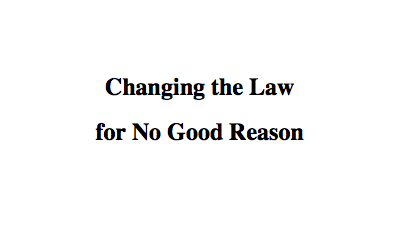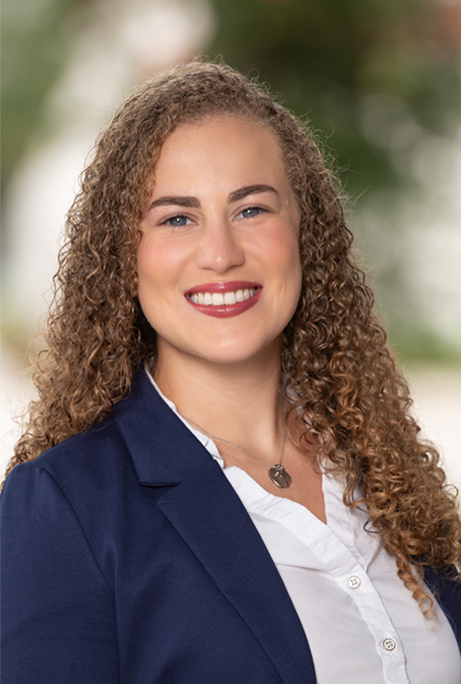New DWI Law in Florida – SB 1810
Florida Senate Bill (SB 1810) introduced by Senator Stephen R. Wise, Republican, on January 7, 2012, would change Florida’s DUI laws to a DWI standard. DWI stands for “Driving While Impaired.” The proposed legislation amends the term “under the influence to the extend normal faculties are impaired” to “impaired to the extent that the person is deprived of his or her abilities.” If the bill becomes law it would take effect on July 1, 2012.
No companion bill has been introduced in the Florida House of Representatives. SB 1801 has not yet been scheduled for any committee hearings, although it has been referred to three committees.
So what is the point of switching from a DUI standard to a DWI standard? The DWI standard substitutes the term “normal faculties impaired” for “weaken or diminish a person’s physical or mental abilities.”
DUI vs. DWI
What is the difference between DUI and DWI under this newly proposed statute? Under Florida 2012 SB 1810, Florida Statute 316.193 would be amended in the following ways:
- Define the terms “impair” or “impaired.”
- Provides that a person commits the offense of DWI if the person is driving a motor vehicle and satisfies the specified criteria relating to the consumption of alcohol, controlled substances, or other impairing substances.
- Provides that a person commits the offense of DWI if the person has in the blood or urine certain controlled substances in specified circumstances.
- Provides that a person is entitled to an affirmative defense to DWI if the defendant introduced a controlled substance into his or her body pursuant to a prescription issued by a licensed health professional who is authorized to prescribe the controlled substance and if the person consumed the controlled substance in accordance with the health professional’s directions.
- Provides that the use of a nonprescribed substance does not constitute an affirmative defense for a person who had a prescription for another substance.
- Provides that alcohol or a legal impairing substances does not constitute a defense against a charge of driving while impaired under certain circumstances.
- Attempts to eliminate defenses related to “retrograde extrapolation” by providing that the per se version of DWI is proven if the person has a BAC of 0.08 or more at the time of driving or “anytime after driving as a result of alcohol consumed before or during driving.”
Definitions under Florida’s New Proposed DWI Statute
Under SB 1810, the following terms would be defined as follows:
- The term “impair or impaired” would be defined in Florida’s DWI statute to mean “to weaken or diminish a person’s physical or mental abilities, including, but not limited to, the person’s balance, coordination, reflexes, memory, and comprehension, and the person’s ability to see, hear, walk, talk, judge distances, act in an emergency, follow directions,multitask, and, in general, perform the many mental and physical acts of our daily life.”
DWI by Drugs or Controlled Substances
Besides impairment from alcohol, the proposed legislation contained in Florida’s Senate Bill 1810 would provide that impairment can also result from the following:
- any controlled substances as defined in chapter 893;
- any controlled substance listed on the Federal Register;
- any other imparing substance;
- a combination of these items;
- under a “per se” standard showing a person has in the blood or urine a substance identified as a controlled substance as defined in Schedule I of chapter 893 or the Federal Register, or one of its metabolites or analogs; or
- under a “per se” standard showing a person has in the blood or urine a substance identified as a controlled substance as defined in Schedule II, III, or IV of chapter 893 or the Federal Register, or one of its metabolites or analogs.
Per Se Standard for Drug DWI Cases?
The new language for SB 1810 amends Florida Statute Section 316.193(c) and (d) to create a poorly drafted “per se” standard for drug DWI cases.
(c) The person has in the blood or urine a substance 77 identified as a controlled substance as defined in Schedule I of 78 chapter 893 or the Federal Register, or one of its metabolites 79 or analogs; ora breath-alcohol level of0.08or more grams of80alcohol per 210 liters of breath.81 (d) The person has in the blood or urine a substance 82 identified as a controlled substance in Schedule II, Schedule 83 III, or Schedule IV of chapter 893 or the Federal Register, or 84 one of its metabolites or analogs. (d) The person has in the blood or urine a substance 82 identified as a controlled substance in Schedule II, Schedule 83 III, or Schedule IV of chapter 893 or the Federal Register, or 84 one of its metabolites or analogs.
I would really be interested in knowing who came up with this language. Other states with a per se standard also have a threshold level. For alcohol, that threshold level is 0.08 or more grams of alcohol per 100 milliliters of blood. Under Nevada’s DUI drug laws, the per se standard requires that the blood contains 2 nanograms per ml. of marijuana or 5 nanograms per ml. of marijuana metabolite, or that the urine contains 10 nanograms per ml. of marijuana or 15 nanograms per ml. of marijuana metabolite.
Even these standards are extremely controversial because there is little scientific evidence that would support any inference that impairment results at that level. Nevertheless, the legislature in Nevada set that as the standard.
Whoever wrote the language in Florida’s proposed DWI law just didn’t even bother coming up with a threshold level which will likely lead to a finding that the statute is unconstitutional as vague and overbroad. If the new law passes, innocent people will necessarily be charged with driving while impaired when no impairment occurred.
Theoretically, officers could target anyone they suspected of using marijuana (although not being impaired at the time of driving) in order to trump up a DWI arrest and conviction. The officer could trump up the charge, even though the officer did not really suspect impairment at the time of driving.
Furthermore, this “per se” version of DUI for drugs is totally unnecessary. Officers can already ask the person to perform field sobriety exercises and videotape the person’s performance to show that the person was impaired. Under Florida’s current law, the prosecutor only needs to prove that the person’s “normal faculties” were impaired due to drug or alcohol consumption. The urine or blood test is already admissible with expert testimony that those levels in the system are likely to cause impairment. A “per se” standard is unnecessary.
Affirmative Defense for Legally Prescribed Drugs Found in the Blood or Urine After a DWI Arrest
Since the proposed legislation would amend Florida’s DUI statute to provide for a “per se” version of DWI drugs, the statute also provides for an affirmative defense for legally prescribed medication that provides:
(15)(a) If a person who is charged with violating subsection (1)(d) introduced into his or her body a controlled substance prescribed by a licensed health professional authorized to prescribe the controlled substance and if the person consumed the controlled substance in accordance with the health professional’s directions, the person is entitled to an affirmative defense against any allegation that the person violated subsection (1)(d). The introduction of a nonprescribed substance into the person’s body does not constitute an affirmative defense with respect to any nonprescribed substance.
(b) Except for paragraph (a), the fact that a person charged with violating subsection (1) is or was legally entitled to introduce into the human body alcohol, a chemical substance, a controlled substance, a medication, a drug, or any other impairing substance does not constitute a defense against any charge of violating subsection (1).
Sometimes you have to wonder if the Florida legislature just has too much time on its hands. Why change from a DUI to a DWI standard? If anyone out there knows who actually drafted this legislation then please make a comment or e-mail me. Also, be sure to call or e-mail Senator Wise and the senator in your district to let them know what you think of this ridiculous piece of legislation.
3 comments
Leave a Reply Cancel reply
Free Consultation
Submit this form to request a free and confidential consultation with one of our attorneys.
Our Office Locations
Tampa Office:
Sammis Law Firm, P.A.
1005 N. Marion St.
Tampa, FL 33602
(813) 250-0200
New Port Richey Office:
Sammis Law Firm, P.A.
7509 Little Rd.
New Port Richey, FL 34654
(727) 807-6392
Clearwater Office:
Sammis Law Firm, P.A.
14010 Roosevelt Blvd. #701
Clearwater, FL 33762
(727) 210-7004








I think we both picked up on this about the same time. Agreed that it is extremely poorly drafted. My hope is that Senator Wise doesn’t understand what a metabolite is. Let alone understand the difference between an active metabolite or an inactive metabolite. I haven’t seen anything other than a GC/MS since before I moved to NC or since I came back. A GC/MS cannot detect the active metabolites of marijuana. Rather than spending money to do an LC/MS, the Senate would rather just convict for the convenience of not having to run the right test.
Michael, That is a good point and the reason they cannot get the urine tests into evidence now. Also, the FDLE has such a backlog of urine tests that prosecutors cannot go to trial within the speedy trial period. The legislature should focus on giving the courts and the prosecutors the resources to prosecute guilty people when overwhelming evidence exists instead of creating new crimes with no mens rea so they can catch low-income innocent people. At some point jurors lose faith in our system. This piece of garbage highlights the problem.